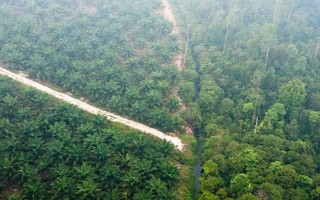The government of Riau province will drop its official state of emergency at the end of the month in the latest evidence that local governments are winding down their anti-haze operations amid increased rain.
“All members of the task force agreed to revoke the emergency status which will expire on November 30,” said Edwar Sanger, the chief of Riau’s disaster management agency.
Several haze experts from Indonesia were in Singapore on Monday to attend a seminar discussing government progress to manage future fire disasters. World Resources Institute Indonesia country director Nirarta Samadhi said Indonesia needed to improve its land-management policies.
“I think President Jokowi truly is of the attitude to deal with this problem. Everything I have seen of him, and his team around him, convinces me that he will really try,” said Simon Tay, chairman of the Singapore Institute of International Affairs, who moderated the seminar.
Questions remain, however, over the central government’s ability to combat the underlying causes of farm and plantation fires in the absence of new legally binding measures proscribing the burning of land. Environmental NGOs are also waiting on a presidential law revoking licenses for development on peat.
The signing of a new palm oil producers’ council (CPOPC) between Indonesia and Malaysia over the weekend has also raised concerns about whether Indonesia can boost small farmers’ livelihoods while implementing new sustainability standards.
“We hope the council will assist both governments in uplifting the welfare of the palm oil smallholders,” said Douglas Uggah Embas, Malaysia’s minister of plantations and commodities.
Indonesia’s chief natural resources minister said last month he believed smallholder welfare was a priority over other countries’ environmental concerns. The council plans to extend membership rights to other producing countries, including Brazil, the Philippines and Thailand.
“We are the biggest palm oil producer,” Indonesia’s chief natural resources minister Rizal Ramli said in October. “Why [should] the consumers from the developed countries set the standard for us as they want?”
Jokowi has instructed the environment to ban new licenses on peat, while a government agency will be created to undertake an unprecedented restoration of peatland.
This pledge to rehabilitate at least 2 million hectares has no legal basis and could clash, however, with a drive by Indonesia’s ministry of agriculture to meet ambitious food security targets by 2019. This month the ministry said it would apply to use 100,000 hectares of burned land to grow food crops.
An op-ed in the Jakarta Post says Jokowi should go further than the current policy on peat.
“Completely stopping expansion will be more effective that the current ban on the issuance of new permits to open primary forests and peatland, which is easily dodged in backroom deals between companies and local administrations,”writes Adisti Sukma Sawitri.
Some haze-affected provinces have meanwhile begun informal inquests into their procedures and capacity to manage future disasters caused by forest fires.
The acting governor of Central Kalimantan said the local government did not have adequate plans in place to mitigate the risks of fires in the Bornean province. Local laws also gave protection to small-scale farmers starting fires to clear land, Hadi told a meeting in the provincial capital Palangkaraya to review the government’s response to the crisis.
“Rules that allow land to be cleared up to a maximum of five hectares per family makes it difficult to enforce the law,” said Hadi.
The government of South Sumatra province, which saw some of the most-intense fires this year on Sumatra island, met with stakeholders on Monday including the Indonesian Palm Oil Association (GAPKI) and pledged to stop the granting of license on peat.










